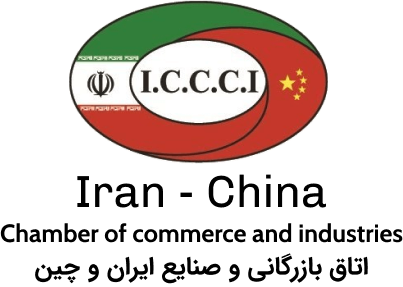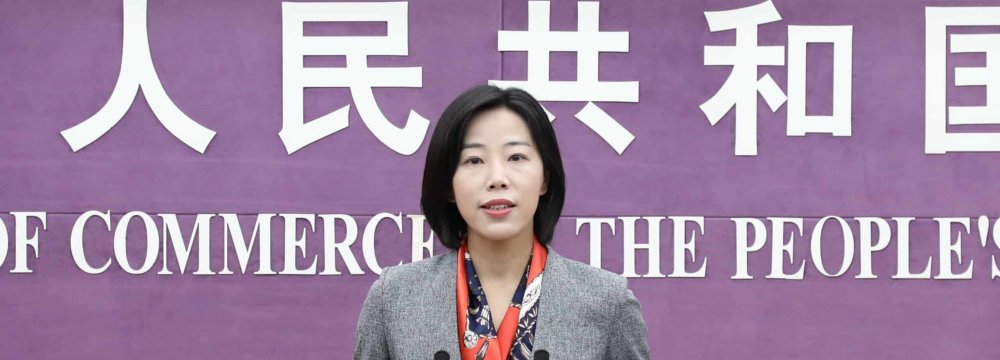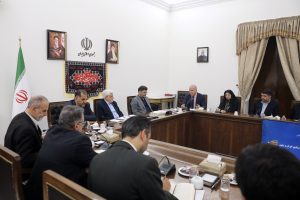China-Iran trade totaled $15.8 billion in 2022, up 7% year-on-year
China has remained Iran’s largest trading partner for 10 consecutive years as of 2022, according to the Chinese Ministry of Commerce.
“China-Iran trade totaled $15.8 billion in 2022, up 7% year-on-year,” Shu Jueting, a spokesperson for China’s Commerce Ministry, told a press conference on Thursday.
Iran’s President Ebrahim Raisi was on a three-day state visit to China starting Feb. 14, Xinhua reported.
During the visit, Tehran and Beijing signed a number of bilateral cooperation documents in the fields of agriculture, trade, tourism, environmental protection, health, disaster relief, culture and sports.
Chinese President Xi Jinping met with Iranian President Ebrahim Raisi on Tuesday in Beijing where the two leaders agreed on deepening China-Iran comprehensive strategic partnership.
“Beijing will unswervingly develop friendly cooperation with Iran, regardless of how the international and regional situation changes,” the Chinese president said.
“China has always viewed and developed its relations with Iran from a strategic perspective.”
The Iranian president was accompanied by a wide-ranging team, including the new central bank governor and six members of Raisi’s Cabinet such as the ministers of economy, petroleum, foreign affairs and trade.
The documents would include agreements in the field of transportation worth $12 billion, which include projects like the high-speed rail link between Tehran and Mashhad, and investment in the Imam Khomeini Airport City.
Investment in Iran’s southeastern Mokran Coast and the purchase of Iranian oil are also mentioned in the documents, Caspian News reported.
Raisi’s visit serves as an example of the high level of mutual trust between China and Iran, as well as a milestone for bilateral ties, CGTN wrote.
“During President Raisi’s visit to China, China and Iran exchanged in-depth views on promoting bilateral economic and trade relations and reached a series of positive results,” Shu said.
“In the next step, we will work with our Iran counterpart to implement the important consensus reached by the two heads of state in the economic and trade fields, deepen pragmatic cooperation in trade and other fields, import more Iranian high-quality products, and continue to carry out cooperation in building the Belt and Road Initiative.”
The spokesperson said China would strengthen multilateral cooperation between the two countries under the frameworks, including the Shanghai Cooperation Organization, and inject new growth impetus into deepening the China-Iran comprehensive strategic partnership.
Iran’s Accession to SCO
A memorandum of obligations on Iran’s Shanghai Cooperation Organization membership was signed at the 22nd meeting of the Council of Heads of State of SCO held on Sept. 16.
China congratulated Iran on its upcoming full membership in SCO and said it is willing to strengthen coordination and cooperation within the SCO framework, the Chinese president said in a meeting with the Iranian president on Friday morning.
Xi stressed that China supports Iran in safeguarding its national sovereignty and national dignity, and is willing to work with Iran to uphold the principle of non-interference in internal affairs and safeguard the common interests of developing countries.
Iran’s Foreign Ministry Spokesperson Nasser Kanani praised the signing of the memorandum, saying that it was “another important and lasting development in strengthening good neighborhood policy and regional convergence, and deepening multilateralism”.
Iran’s permanent membership was approved during the 21st meeting of the Council of Heads of State of SCO in the Tajik capital Dushanbe in September 2021. The country obtained observer status in the organization in June 2005 and applied for full membership in 2008.
SCO is a Eurasian political, economic and security organization founded in 2001. The current members of the organization are China, India, Kazakhstan, Kyrgyzstan, Pakistan, Russia, Tajikistan and Uzbekistan. The observer countries are Afghanistan, Belarus, Iran and Mongolia while partner countries are Armenia, Azerbaijan, Cambodia, Nepal, Turkey and Sri Lanka.
The current SCO summit in Samarkand, Uzbekistan, is expected to finalize the admission of Iran and grant the status of a dialogue partner to Egypt, Qatar and Saudi Arabia.
“This is a very important day for Iran and SCO,” SCO Secretary-General Zhang Ming told reporters at the signing ceremony.
“The Iranian entry into the group of member states will strengthen the Shanghai Cooperation Organization,” he said.
Russian presidential aide, Yury Ushakov, said Iran will be able to participate in the SCO summit as a full member of the organization as early as next year.
“Iran will participate as a full member already at the next summit, which will be held in India in 2023 … There will be nine members,” he added.
Acceptance of Iran as a full member of SCO will open up a new horizon of multilateralism, reads an article published by The Diplomat.
“It will be beneficial not only for Iran but for the whole region. Many analysts argued that even if Iran may not be able to reap many immediate benefits from joining the SCO, it indicates Iran’s willingness to pursue stronger relations with China and Russia, the organization’s two most powerful members,” the article said.
“China and Iran have established a wide-ranging and close relationship over the past few decades, with focus on China’s energy requirements and Iran’s resources in addition to considerable non-energy economic links, arms sales, defense cooperation and geostrategic balancing with the United States … Joining SCO is a success for Iran on both economic as well as political fronts. Since 2018, when the US ex-president, Donald Trump, pulled out of Tehran’s nuclear agreement with major powers, including Russia and China, the Iranian economy suffered critically. Therefore, inclusion in SCO will open up new avenues for trade and cooperation with neighboring states which, in return, help Iran solve its economic challenges.”
25-Year Cooperation Deal
Raisi’s three-day visit to China – the first since he took office in August 2021 – will accelerate the implementation of the 25-year agreement between the two countries, Chinese experts said.
China and Iran have announced plans to strengthen ties in the fields of energy and infrastructure, as they have launched the cooperation agreement.
The landmark agreement, which was signed in March 2021 and entered into force on Jan. 14, will see the two countries expand cooperation in the fields of energy, infrastructure, production capacity, science, technology, medicine and healthcare, according to a statement from China’s Foreign Ministry.
Bilateral cooperation will also be expanded to third-party markets in the fields of agriculture, fisheries and cybersecurity.
Iran’s Foreign Minister Hossein Amir-Abdollahian told China’s state news agency Xinhua that Tehran “looks forward to learning from China’s development experience and advanced technology”.
Wang also reiterated China’s position on Iran’s nuclear deal, to which it is a signatory, saying the US bore most of the responsibility for months of stagnation in talks about reviving the deal, as it unilaterally quit the same in 2018.
The cooperation document was discussed for the first time in 2015, when the Chinese president visited Iran. The agreement reportedly pledges Chinese investments of $400–600 billion.





